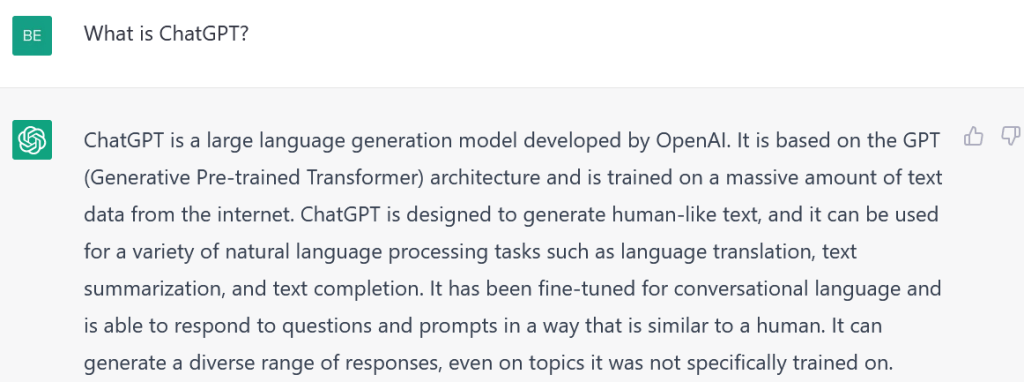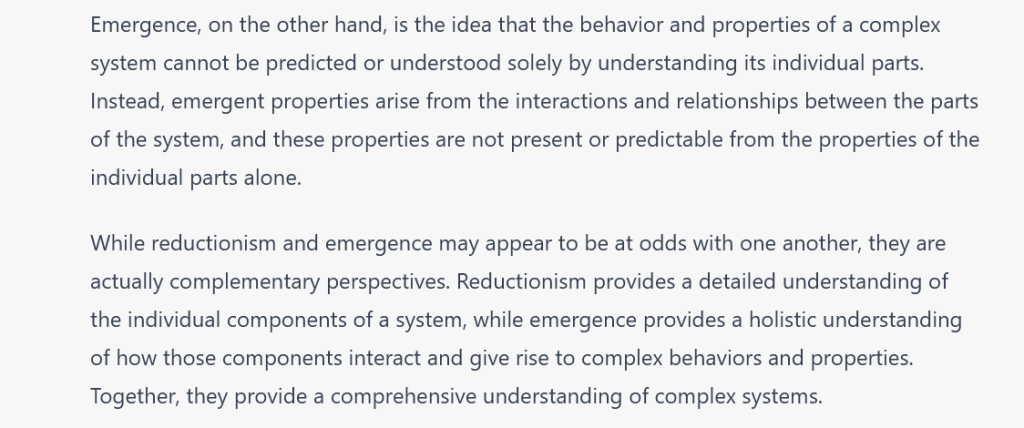“The course “Systems Theory, Psychology, and Social Media” was a fascinating and thought-provoking exploration of how systems theory can be applied to understanding the impact of social media on individuals and society as a whole.
One of the most interesting aspects of the course was learning about how social media platforms can create feedback loops that can have both positive and negative effects on users. On one hand, social media can provide a sense of connection and belonging, but on the other hand, it can also contribute to feelings of isolation and loneliness.
The course also delved into the psychological effects of social media use, such as the impact on self-esteem, addiction, and mental health. It was eye-opening to see the ways in which social media can shape our thoughts, emotions, and behavior.
Furthermore, the course exposed the complex dynamics of social media and its impact on social structures and political systems. The course helped me understand how social media can be used to mobilize groups, spread misinformation, and influence political decisions.
Overall, this course provided a comprehensive and in-depth understanding of how systems theory can be applied to the study of social media. It made me aware of the positive and negative effects of social media, and it has made me more thoughtful about my own use of social media.”
What do you think of this reflection? Does it fit our course? Well, guess what – this was not written by me but by an artificial intelligence. It is called “ChatGPT” and in case you have not heard of it before here is an explanation of it by the program itself:

For the ‘reflection’ above I asked ChatGPT to do the following thing: “Write a reflection on a course called “Systems Theory, Psychology and Social Media.” And with just the information on the title of the course, the AI managed to produce such a high-quality text. Of course it doesn’t fit our course contents perfectly, but it managed to guess quite a lot of it correctly. If I had given it more information, it could have been impossible to know that it was not written by me. And the texts that ChatGPT produces sound like they were written by a human. ChatGPT is a free assistant for anyone who wants to use it: you can ask it questions instead of googling, it simplifies complicated topics, you can ask for help on personal problems (the program will also tell you that you should also seek other help and support), it can even write poems, lyrics, scripts and stories:


It is crazy to me that an artificial intelligence can do all of this. If I would try to write a poem like this it would take hours if not days, and ChatGPT does it in less than 5 seconds. How is this not superior to us humans?
I think ChatGPT is great. It is accessible and provides help to anyone who wants to use it. But it also scares me that AIs like this one could get into the hands of the wrong people. Imagine an artificial intelligence that aims to increase efficiency in the healthcare sector. What if it gets hacked and millions of people’s personal health history is open to the public? What if insurances use data leaks like this one to up people’s payment contributions? What scares me about AI is the uncertainty of what could happen with it. I cannot imagine that a super intelligent AI that outsmarts humanity will take over the world but then again, who knows?
Before the winter break we talked about the techno-social rhizome in class. We learned that it is a “networked super-intelligence” that refers to the relationship between technology and society and the complex and constantly evolving interactions between them. “Rhizome” refers to a system that is non-hierarchical, decentralized, and interconnected. Everything is connected to each other even when the connections might not be visible. They exist. Technology is not just a passive tool that we as human use but also an active force shaping our social norms, values, and structures.
Now there is one thing that does not make sense to me here. How is this techno-social rhizome a non-hierarchical system?
It probably depends on how you view it. If everything affects everything then of course there is no hierarchy in the way that one part of the system affects the rest but is not affected itself by what the other parts do. But I do think that there is a hierarchies of the kind of effects that the different parts of our techno-social rhizome world have on each other.
Imagine an app that is used by millions of people all over the world. Like Facebook for example. Remember the Cambridge Analytica scandal? Cambridge Analytica was a British consulting firm that harvested personal data from millions of Facebook users without their authorization. The data was then used by the campaign of Donald Trump to target political advertising in the 2016 US presidential elections. It was designed to influence the opinions and behaviors of voters which eventually lead to Trump’s win. I would argue that the way these Facebook users influenced the outcome of the election individually through their vote is not as big as the general influence the political ads had on the outcome of the election. Of course it is impossible to know that for sure but what I wanted to show with this example is that there is a hierarchy. Especially when one part of the system is unaware of how it is being influenced. However, I do not think that hierarchies are inevitably bad; it depends on who is at the top of it and with what intentions their exert their influence.
After the end of the course I also want to reflect on my general experience. Obviously, artificial intelligence is one of the topics that really interested me but it is not the only one.
So, what did I learn? What did I not understand? What would I like to ask? How do I feel right now? And how can I use what I learned in my life?
After the end of our course I feel good about what we learned. The topics we touched upon definitely broadened my perspective on the world we live in and sparked my interest to dive further into the topics. I liked that we experienced a different teaching style. I do think that we could have learned more though. Especially about the topic of social media, which is one third of the course title. I don’t think we really spoke about it except for some comments on the side. Overall, I really appreciated writing these blogposts. We might not have learned as much as in a normal course but what I did learn I really will remember now. It was good to interact with what we learned and to reflect on it myself while also reading what others thought about it. And I do feel like it connected us as a group more.
In our course we learned about what a system’s view on life means, the difference between collections and systems, about reductionism and emergence, the Anthropocene, homeostasis, artificial intelligence and rhizomes. I feel confident in my understanding of these topics. The one thing I do not completely understand yet is what reductionism has to do with emergence. I get what each concept itself is but not how they are connected. But do not worry if you feel the same because, surprise, ChatGPT had an answer for me:


I want to conclude my reflection by answering the question “How can I use what I learned in my life?”
I will always try to keep in mind the system’s view of life and see myself in relation to everyone and everything around me. I will remember that we are all complex systems that are part of an even greater system connecting us all. I think the course was humbling in the way that it made me realize how small we are in this big world. Yet it has also given me assurance in the way it showed me that even a small part in a big and complex system can have a great impact. That makes me feel more confident about our life in the Anthropocene with the threat of climate change always looming above us. And who knows, maybe artificial intelligence, as inscrutable as it may be, will be an asset in overcoming challenges like this one. What I will take away from this course is to always have the bigger, systemic picture in mind. There are connections even when we can’t see them. I study in a very interdisciplinary program which I think enables us students to have a systemic view on issues. In our increasingly connected world and also in academics it is necessary to apply this view on issues because no issue is completely isolated from the rest of the world.